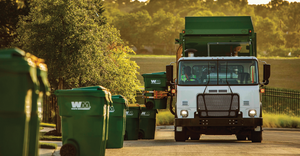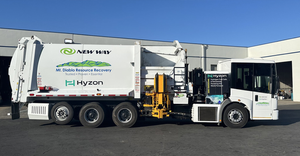Indonesia Adopts ISRI Specs for Recovered Paper, Returns Trash Imports
Indonesia is using ISRI’s specifications for recovered paper after the country’s latest regulations sparked confusion across the global market.
Last month, the Indonesian government imposed new regulations on imports of recovered paper that sparked confusion across the global recovered paper market, according to the Institute of Scrap Recycling Industries (ISRI). Those regulations included a 0.5 percent contamination limit and 100 percent pre-shipment inspections to ensure inspections were “clean, dry and homogenous.”
Now, however, Indonesia announced it will use ISRI’s specifications for recovered paper, which set a standard of 1 to 2 percent for prohibitives and 3 to 4 percent for outhrows. Indonesia also will use ISRI’s specifications to define “homogenous.”
According to ISRI, pre-shipment requirements put in place by the Indonesian government last month caused a severe drop in imports of recovered paper. ISRI also said that over the last several months, it has been working with stakeholders and officials in Indonesia on industry standards and practices.
In addition, Indonesia just returned a shipment of waste paper from Canada—imported via the U.S.—because it was contaminated with plastic, rubber and diapers, according to a Reuters report. The country’s Environment Ministry told Reuters that five containers of waste had been sent back to Seattle from Indonesia.
This is the most recent country in Southeast Asia to send back trash labeled as recyclable materials. Several years ago, a private business in Canada had shipped 103 containers of trash labeled as mixed plastic recyclables concealing an unsorted mix of waste, including adult diapers, to the Philippines. Canada recently took back its trash after a legal battle between the two countries ensued.
Reuters has more information:
Indonesia has sent back a consignment of Canadian paper waste, imported via the United States, because it was contaminated with material including plastic, rubber and diapers, the environment ministry said.
Indonesia is the latest Southeast Asian country to send back trash amid a spike in imports from Western countries after China banned imports, disrupting the global flow of millions of tonnes of waste each year.
Environment ministry official Sayid Muhadhar said by telephone five containers, or around 100 tonnes, of waste had now been sent back to Seattle from Indonesia’s second-biggest city of Surabaya.
About the Author
You May Also Like


